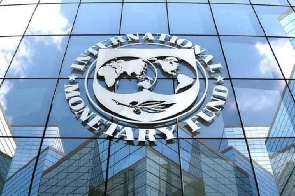 The International Monetary Fund
The International Monetary Fund
The Director General of the International Monetary Fund (IMF) Kristalina Georgieva has revealed that 1.7 billion adults around the world are still unbanked.
She said about half of unbanked people include women from poor households in rural areas or out of the workforce.
Madam Georgieva said these during a virtual conference on Financial Inclusion and Cybersecurity Co-hosted by IMF, Carnegie Endowment for International Peace, World Bank, and the World Economic Forum on Thursday December 10.
She said “This brings me to a very important point: COVID-19 accelerates our digital advancements, and opportunities are multiplying at an even faster pace. But so are the risks. And if we want to harness the great power of technology to lift people up, we need to deal effectively with the threats that can bring technology down and harm lives and livelihoods.
“This matters tremendously for financial inclusion, an area where the digital transformation creates so many opportunities. Financial inclusion is one of the most powerful tools we have to fight poverty and lift up living standards. It is also crucial for empowering women.
“The good news is that we have already made some great strides toward financial inclusion. An additional 1.2 billion adults worldwide have gotten access to a bank account since 2011. Today, 69% of adults have an account. But while we have made progress, much remains to be done.
“Close to one-third of adults—1.7 billion—are still unbanked. About half of unbanked people include women from poor households in rural areas or out of the workforce.
“Increasingly, it is digital financial services that we are turning to in order to close these gaps and bring finance to the most vulnerable.
“But just as we are becoming more reliant on digital financial services, the number of cyberattacks is growing. In fact, attacks have tripled over the last decade, and financial services continue to be the most targeted industry. Attackers target large and small institutions, rich and poor countries, and operate without borders.
“These cyber threats can have a grave impact on financial stability — the subject of a Staff Discussion Note the IMF has just published this week: “Cyber Risk and Financial Stability: It’s a Small World After All.” And in threatening financial stability, cyber attacks can also deny people the benefits of financial inclusion.
“For example, what if a cyber-attack takes a bank down and a remittance doesn’t go through? What if a mobile money app is hacked and a family cannot get a cash transfer they need to pay for food?
“So make no mistake: in this digital world, efforts to expand financial inclusion and strengthen cyber security must go hand in hand.”